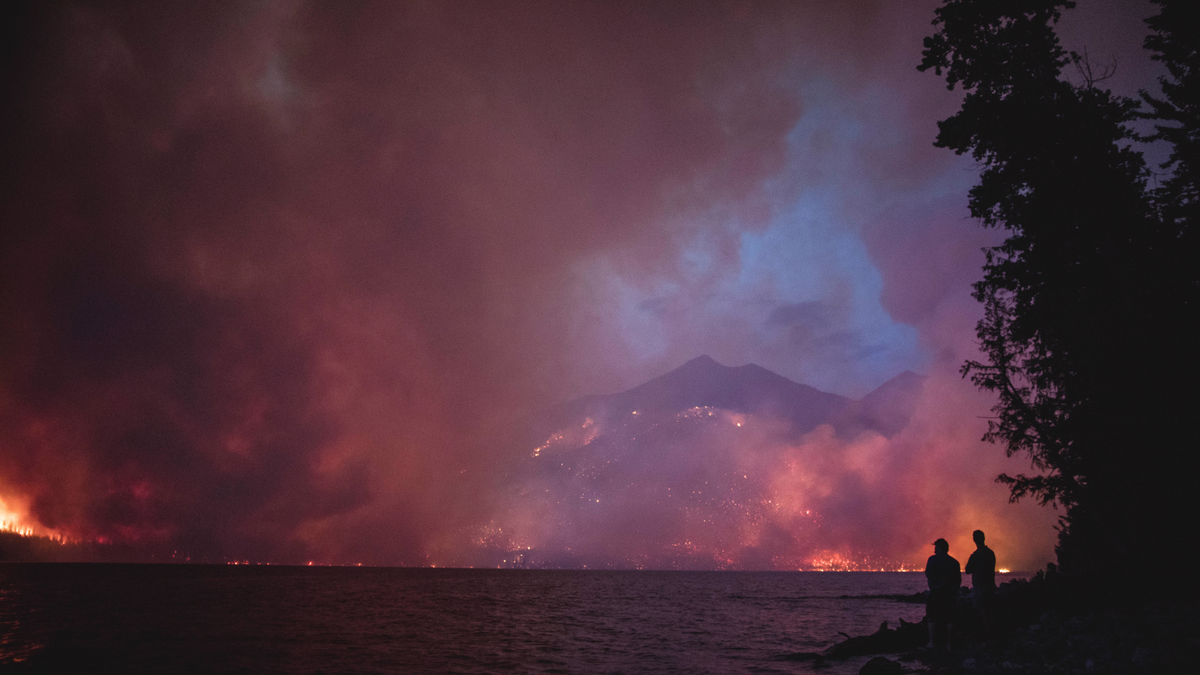
HELENA, Mont. – Much-needed rain fell across Montana on Monday and slowed the spread of a fire burning near the U.S.-Canada border enough for Canadian officials to lift an evacuation order issued last week for Waterton Lakes National Park.
The rain has suppressed but not extinguished the 3-square-mile (8-square-kilometer) blaze burning in the northern part of Glacier National Park and threatening Waterton Lakes a year after another fire swept through the Alberta park.
"They got almost ¾ of an inch of rain over the last 24 (hours) ... into early this morning," said Rocky Gilbert, the operations chief for Southwest Incident Management Team leading the firefighting efforts, in a video update Monday morning. "Hopefully things will be looking pretty good up on that fire with the rainfall."
Parks Canada officials said in a statement Monday that most of last week's closures have been lifted for Waterton park's trails, backcountry campgrounds and waterways.
It was the second consecutive year the park has been evacuated because of fire. A 2017 blaze burned over much of the park, destroying infrastructure and affecting more than 80 percent of its trails.
The rain also slowed another fire burning in Glacier near Lake McDonald that previously destroyed 14 residences and 13 other structures. Evacuation orders there remain in place and officials said Monday there is the possibility of wind-driven fire activity later this week when drier weather arrives.
Crews fighting fires across the state similarly reported rain from the weekend holding the blazes in check.
The rain was expected to continue through Monday night, with snow forecast for elevations above 6,000 feet (1,830 meters) in Glacier National Park and in western Montana, according to the National Weather Service.
Between 1 and 4 inches (2.5 centimeters and 10 centimeters) of snow could fall in the mountains, and up to 10 inches (25 centimeters) could fall on the highest peaks near the Canadian border.
Approximately 950 fires have burned 106 square miles (274 square kilometers) so far this year in Montana, which is just 5 percent of the land that burned across the state in last year's record-setting season.







































